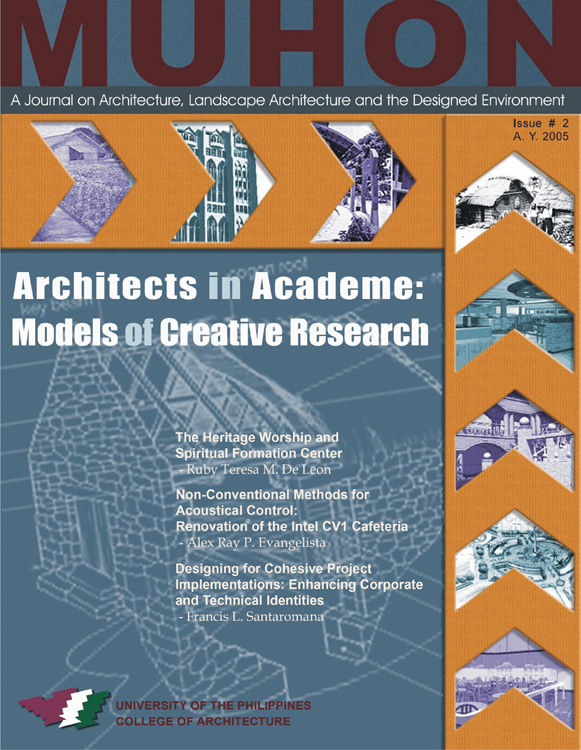The Roots of Our Problems with Our Physical Environment: A Modest Theory
Abstract
The problems the country faces with regard to its physical environment, particularly in urban areas, may have its roots in the 1898-1907 turn of the century period. Traffic and the accompanying pollution, urban congestion, and the incessant housing problem may all find their roots in a crucial point in our country’s past: the end of Spain’s rule and America’s “benevolent assimilation.”
The paper aims to present documentary evidence on the causes of contemporary problems such as the perceived lack of discipline in our streets and the congestion of people and vehicles in urban centers. Particularly, it will discuss the results of past studies on urban public places: the bus stops, sidewalks and urban nodes, and relate it to fundamental flaws in our urban design standards and ultimately in our concept of nationhood.
In relating it to the concept of nationhood, the paper shall point out crucial points in our history where the foundations of Philippine urban design and architecture have taken root and ultimately affect the physical environment, as we know it today. It will attempt to show how the country’s policy makers were “seduced” into believing that everything American was “the modern way” and that traditional values should be discarded. Eventually, as the tenets of modernism came under fire, and with the renewed “veneration” of the vernacular traditions, our physical environments put on a “Filipino face,” but still retained the Western “bones”.
Seen as a whole, our path to genuine nationhood may be seen as a story of interrupted starts and miscues. From the interrupted formalization of our First Republic under Aguinaldo, to the knee-weakening coup attempts in 1987, our story shows we never had the chance to bloom and flourish as a unique culture and that we had to continually battle against Western/ foreign interests and mannerisms.
This second turn of the century for our country may be the last chance we may have in correcting our flaws and forging a new path toward a true people-oriented environment.
This paper was presented in the Philippine Studies International Conference last July 2000.The copyright for the published work belongs to UPCA and its selected publisher. The contributor is free to publish a modified version of the same article in other publications.
The contributor guarantees that :
- the article does not infringe on the copyright or any proprietary right of any other person
- the article contains no libelous or other unlawful matter
- the article makes no improper invasion of the privacy of any other person.





